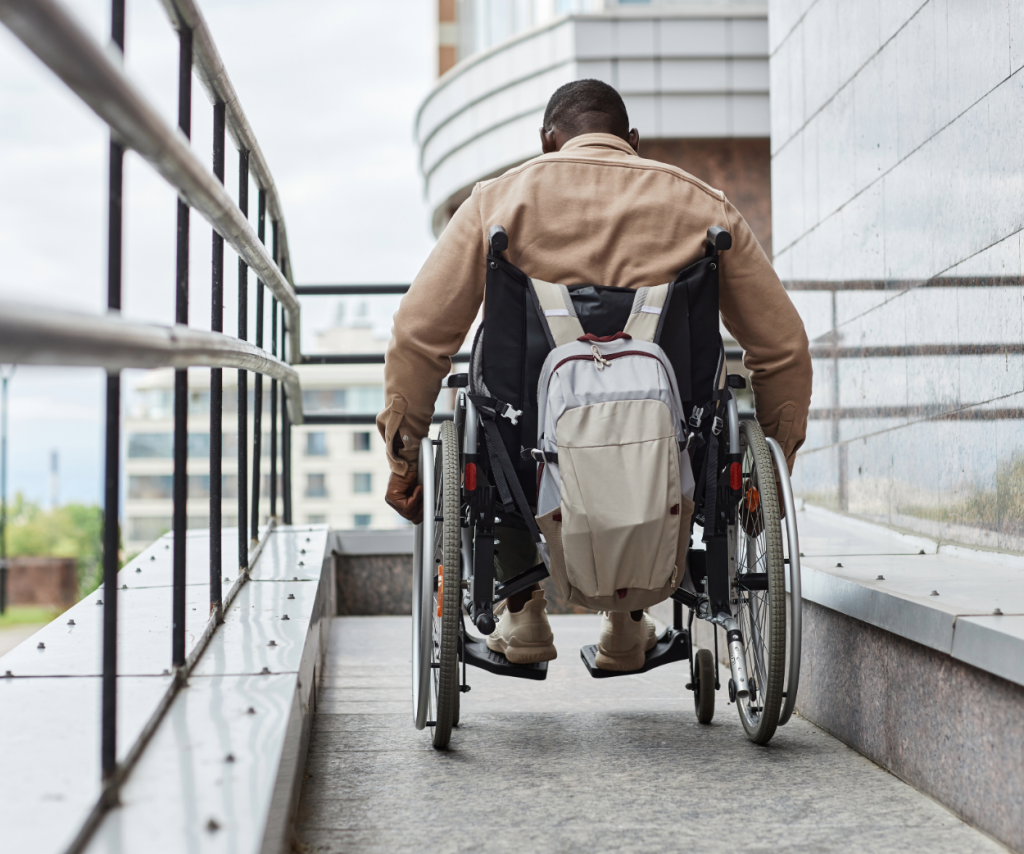Did You Know: Preventive Maintenance
Did You Know: Most insurance providers don’t cover preventive maintenance for complex rehabilitation technology (CRT) equipment?
While preventive care, such as bi-annual dental exams, preventive screenings and physical exams, is routinely covered by health insurance providers, preventive maintenance for CRT equipment is generally not covered. As a result, many CRT users feel they must wait for a part to fail before seeking a repair, which often leads to longer repair times, decreased mobility and independence, lost income, missing out on family and social events, and sometimes even contributes to medical complications.
How Would Coverage for Preventive Maintenance Help CRT Users?
CRT equipment is highly customized and often comprised of thousands of components. Since CRT users use mobility equipment daily, the wear and tear adds up. Parts wear out or require frequent maintenance to keep the wheelchair working at optimal levels. Like routine oil changes or tire rotations on a car or scheduled tune-ups for household appliances, preventive maintenance for CRT equipment would benefit CRT users and their caregivers in several ways:
- Reducing catastrophic equipment failures by catching wear and tear before it contributes to additional damage or malfunctions.
- Ensuring frequent adjustments so that the chair is configured to a CRT user’s specific needs, including posture, alignment, pressure distribution, comfort and more.
- Reducing health risks that can develop when a CRT user is immobile or incorrectly seated, such as pressure sores and musculoskeletal issues or falls and collisions caused by equipment failure.
- Preventing loss of mobility, allowing CRT users to work, spend time with friends and family and keep moving through their lives.
- Minimizing repair wait times since catastrophic equipment failures often lead to lengthy repairs and allows CRT users and caregivers to plan ahead for routine maintenance rather than deal with an emergency when a chair fails.
What Does Data Reveal about the Value of Preventive Maintenance for CRT Equipment?
Researchers have conducted several studies that point to the value of preventive maintenance for CRT equipment in preventing injuries, accidents and medical complications. Chair failures can also affect income, mental health and participation in work, family and community life, which studies have noted as well.
Here are a few highlights:
- Research has shown that proactively checking up on equipment can lead to fewer accidents.
- While most CRT equipment is intended to have a five-year “useful life,” a number of components and parts routinely fail before that. These include casters, tires, bearings and more for manual chairs and electronics, batteries and motors for power chairs.
- The more complex the mobility equipment, the higher the probability of a high-risk chair failure, often affecting CRT users with the most severe diagnoses and need for mobility solutions.
- When a chair failure results in immediate consequences—being stranded, missing work or appointments—CRT users face a higher likelihood of developing pressure sores or being hospitalized.
Learn more about the research that supports the value of preventive maintenance in ensuring CRT users can enjoy the highest levels of mobility and independence possible.
Educate Yourself: Tennessee was the first state to enact legislation requiring its state Medicaid program to cover annual preventive maintenance for CRT equipment but legislation is under discussion or consideration in several states. Tennessee’s legislation, which took effect in July 2024, requires qualified technicians to perform all preventive maintenance services under manufacturer guidelines. Learn if legislation is being considered in your state.
Did You Know You Can Make a Difference?
As a CRT user, your experience can help legislators and health insurance carriers understand the value of coverage for preventive maintenance. You can help by:
Research What’s Happening in Your State: Follow advocacy organizations like NCART, iNRRTS, AAHomecare and other advocates to stay up-to-date about ongoing efforts and learn what is happening in your state.
Share Your Story: Lawmakers and health insurance providers may not fully understand the positive impact preventive maintenance could have on your daily life. By sharing your story and real examples of how equipment failures have impacted your life, work and health, you can help them understand the benefits covering preventive maintenance would provide. Find your elected officials.
Make Your Voice Heard: In many ways, private healthcare insurance providers follow the example of Medicare and Medicaid. Call the Centers for Medicare and Medicaid Services (CMS) directly at 1-800-633-4227 to urge coverage of preventive maintenance.
More Stories
Related Articles
5 Things to Know as You Start the New CRT Equipment Process
When it’s time to get new complex rehabilitation technology (CRT) equipment, the process can feel overwhelming. Even if you’ve been through the experience before, it’s…
National Seating & Mobility Takes the Hassle Out of Managing Medical Supplies
We work with your insurance, healthcare providers and top manufacturers to keep your supplies coming — seamlessly. For caregivers and those who rely on home…
Did You Know: Temporary Wheelchair Replacement Coverage
Did You Know: Most commercial insurance carriers don’t cover loaner equipment for CRT users? It’s common to expect a loaner or rental car coverage when…


